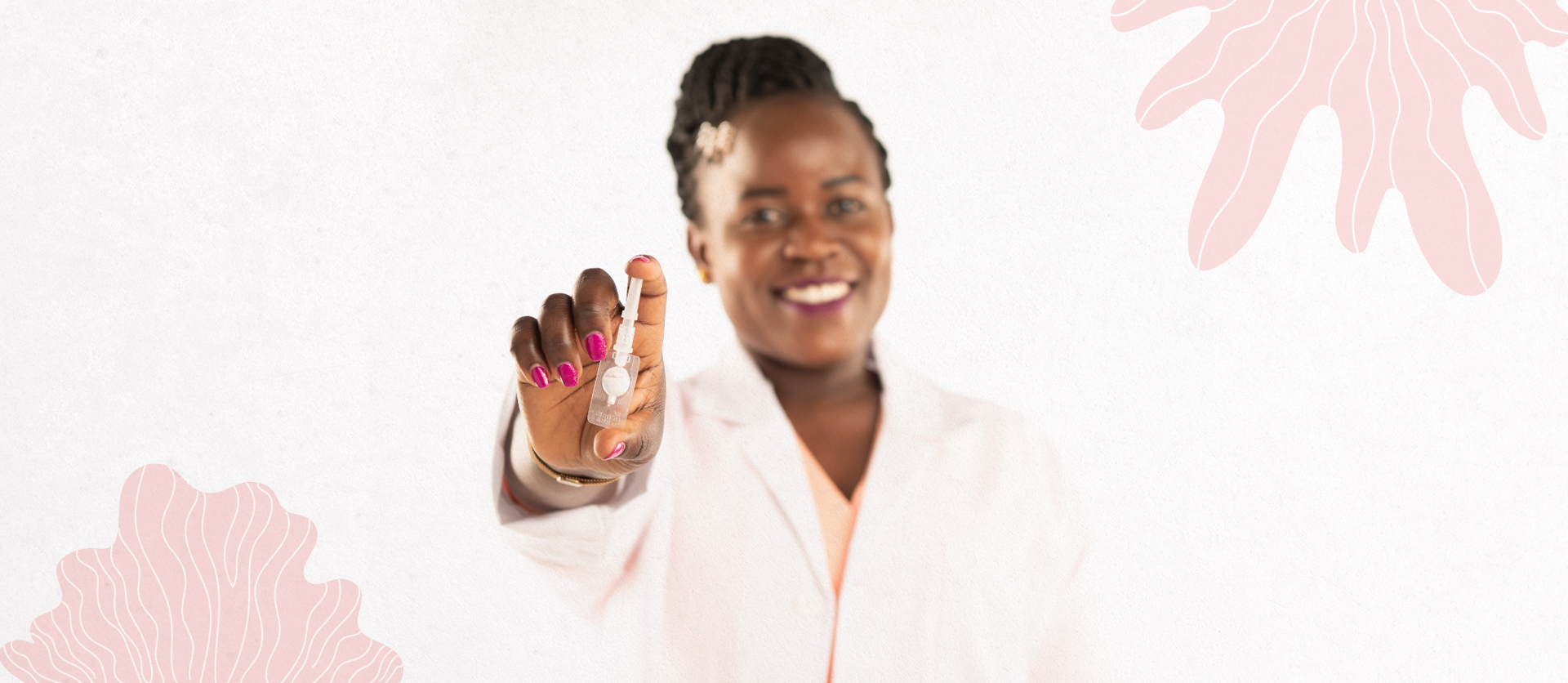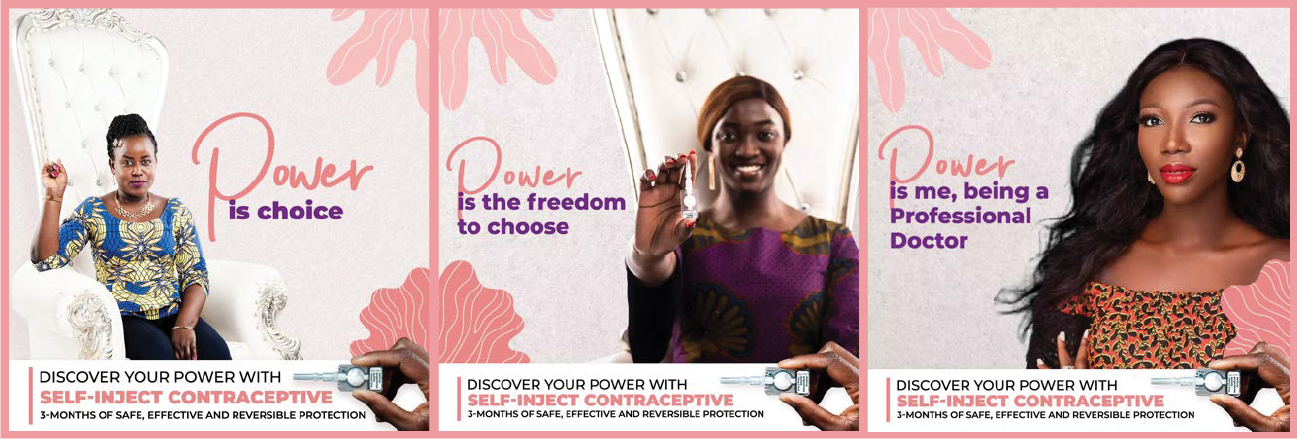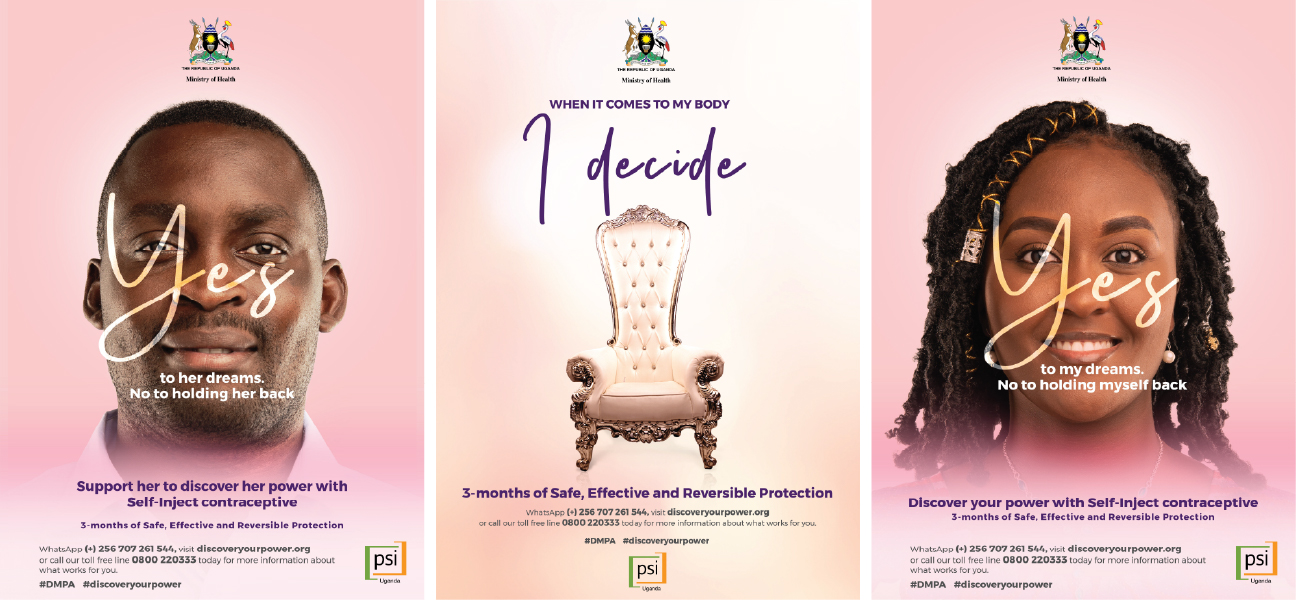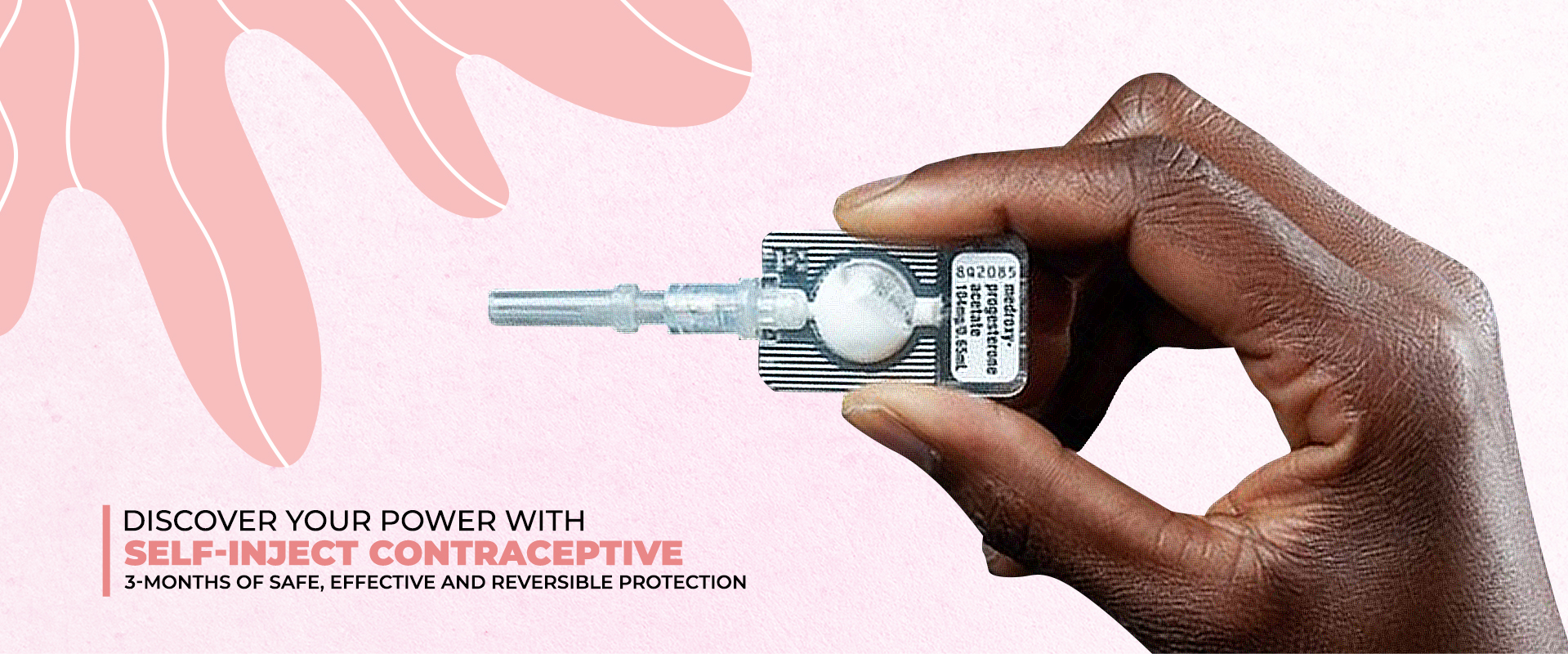DELIVERING INNOVATION IN SELFCARE CASE STUDY
disc
For the past 45 years, Population Services International (PSI) has been working in over 60 countries, as a leading non-profit social marketing organization. PSI›s mission is to reimagine healthcare by putting the consumer at the centre, and wherever possible - bringing care to the front door
The object of DISC is to demonstrate the attractiveness and feasibility of self-care (initially) through a focus on self-injection – (DMPA-SC). Self-care is a big opportunity for increasing access to family planning. Contraceptive self-injection is more e ective and lasts longer to prevent unintended pregnancy than other woman-controlled options. Therefore, self-injection – and other self-care approaches — are game-changing, enabling women to take greater control over their ability to plan for & prevent pregnancy, to achieve their life goals.
Fieldstone Helms, in collaboration with PSI, worked to develop & launch a consumer engagement program equipped our target consumers with the user knowledge, motivation, and agency necessary to take up and sustain use of self-injection, increasing their ability to control their fertility while also encouraging their advocacy to advance self-care and self-inject in Nigeria and Uganda.

01 APPROACH
DISC utilizes PSI’s Keystone approach to project design. The Four Keystone Phases are Diagnose, Decide, Design, and Deliver; DISC’s priorities by phase included:
- Diagnose: Gain insight into consumer behavior and market performance based on research findings from early adopters, SRH providers, and target consumer segments.
- Decide: Set strategic priorities to achieve sustainability and determine who is best positioned to deliver on the intervention objectives.
- Design: Develop intervention through bringing user insights into the design process and leveraging best practices.
- Deliver: Implement activities and gather further insights through systematized.

02 CHALLENGE
Self-inject is an innovative method of contraceptive that offers discretion and convenience, along with the confidence of 3 months of protection against unintended pregnancy.
Awareness and uptake & continuation are currently low because of limited promotion, inconsistent access to supply/ training and other social norm barriers that prevent women from choosing contraceptives. Currently, self-injection is new to many markets, and e ective demand generation lags behind e orts to train and supervise providers. In addition, many pharmacy sta at the time were wary of stocking the product as they did not have clients coming in and asking for it.
We aimed to catalyse mass adoption amongst our target segments by using both traditional media channels & innovative digital tools to increase awareness, empower women with information, support and tools to enable them to successfully self-inject, support them in continued use of the product.

03 CREATIVE PROPOSITION
From a creative standpoint, the concept of Self Care as a gateway to introduce Self-Inject encapsulated a big challenge because in the African context, “you can’t have a self”. That’s the tension. From everything, we know about our African sister, wives, and mothers. You can’t have self.
This is what fascinates us about what we are doing. Today, this woman that is the focus of our attention, is focused on many things. Regardless of how old she is, she is so busy taking care of everything and everyone around her that her SELF is often neglected. Often, she can’t have a self because she is a “woman in the middle” sitting on a two-legged stool that consists of work and home responsibilities; she is constantly trying to strike a balance to keep from falling.
But this tension also provided us with an opportunity for Self-Inject to play a meaningful role in our audience’s life by making the concept of self-care emotionally and rationally vacceptable.

Therefore, our communication task was a combination of perceptual and behavioral goals:-
- Help her care about self-care - Increasing preference for self-care and drive consideration as part of her priorities (perceptual shift)
- Help her decide - help her conclude that contraception helps her in achieving her priorities (behavioural shift)
- Help her share - she becomes an advocate for SI (behavioural shift) - increase loyalty and advocacy (behavioural shift)
Insights generated from the research phase revealed to us that Self-Inject gave women a sense of power. As you know, power is the ability to do something in a particular way. And so, we used the concept of power and positioned it as a woman’s capacity to make her own choices. And so she says yes to the things she wants and no to the tZhings she doesn’t like. For family planning, this means no to unwanted pregnancy and yes to self-injection.
